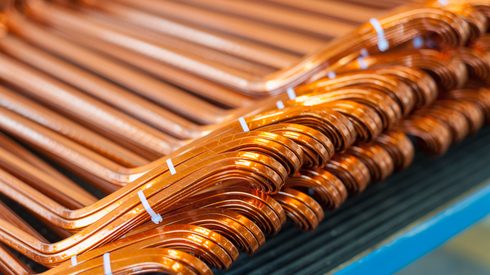As conference season gets into full swing, Metal Bulletin deputy editor Fleur Ritzema outlines this week’s key news from the metal markets.
Zinc
Reporting from the International Zinc Assn conference in California, Metal Bulletin’s Andrea Hotter revealed that miners, smelters and trading firms are still negotiating a benchmark zinc treatment charge. Prices have been ranging from $220 per tonne to as high as $228 per tonne, depending on quality and term-length of the deal. The bartering continues.
Hotter also noted that regional differences in the approach to TCs were apparent. Chinese smelters conduct the majority of their buying through traders instead of going directly to miners, the opposite situation to the rest of the world.
Production from the Dugald River project will be delayed by around a year, it was also revealed in California. The ceo of MMG, majority-owned by China Minmetals Corp, gave its first indication of how the technical issues at the mine will affect its development timetable, and said the firm is focused on getting the mine right.
Indonesia Mining
And on the other side of the world, Indonesian exports were the hot topic of conversation at this week’s annual Indonesia Mining conference in Bali, attended by Metal Bulletin’s Shivani Singh.
Indonesian Mining Assn vice chairman Tony Wenas warned that the progressive export tax imposed by the Indonesian government could see the country’s mining sector collapse in as little as one month, as the industry struggles with shutdowns and layoffs.
Singh also revealed that Indonesia wants to have 63 processing and refining plants for minerals such as copper, lead, bauxite, iron, nickel and manganese by 2017.
And Ryan Chung, executive director of China-ASEAN Fund (CAF), told Singh that Indonesia’s largest ferro-nickel project is expected to start commercial production at its 300,000-tpy smelter by the first quarter of 2015.
Aluminium
In aluminium, the industry has seen its latest closure. Alcoa said it will permanently close the Point Henry aluminium smelter in Victoria, Australia, this August.
Alcoa’s decision will only add to the physical tightness that has been a major contributor to the record high aluminium premiums across all major markets this year.
In Asia, negotiations took place for the quarterly Main Japanese port (MJP) premium. One major producer told Metal Bulletin that the premium will have to rise to close to $400 per tonne levels in the second quarter, from the $255-256 level settled for the current quarter.
And with demand still good and US premiums still considerably higher than European levels, the chance of a significant fall in premiums in Europe this year is becoming remote, Jethro Wookey explains in Metal Bulletin’s latest video.
Arbitrations, minors and infographic
Also this week, Lord Copper notes that the number of arbitrations brought under the LME rules has declined sharply in recent years. The LME arbitration system prides itself as being pre-eminent in the commodity world, so what are the reasons for the drop-off in numbers?
MInor metals prices showed continuing strength this week.
Cobalt prices reached 21-month highs, and indium continued to rally – it is now up $70 since the start of the year.
For more on the spot business reported in the minor metals markets, check out Metal Bulletin’s minor metals and cobalt trade logs.
And to help readers understand the recent big developments in the minor metals markets, Metal Bulletin has done some number crunching to produce this new infographic: ‘Major Moves in Minor Metals’.
Fleur Ritzema
fritzema@metalbulletin.com
Twitter: FleurRitzema_MB





